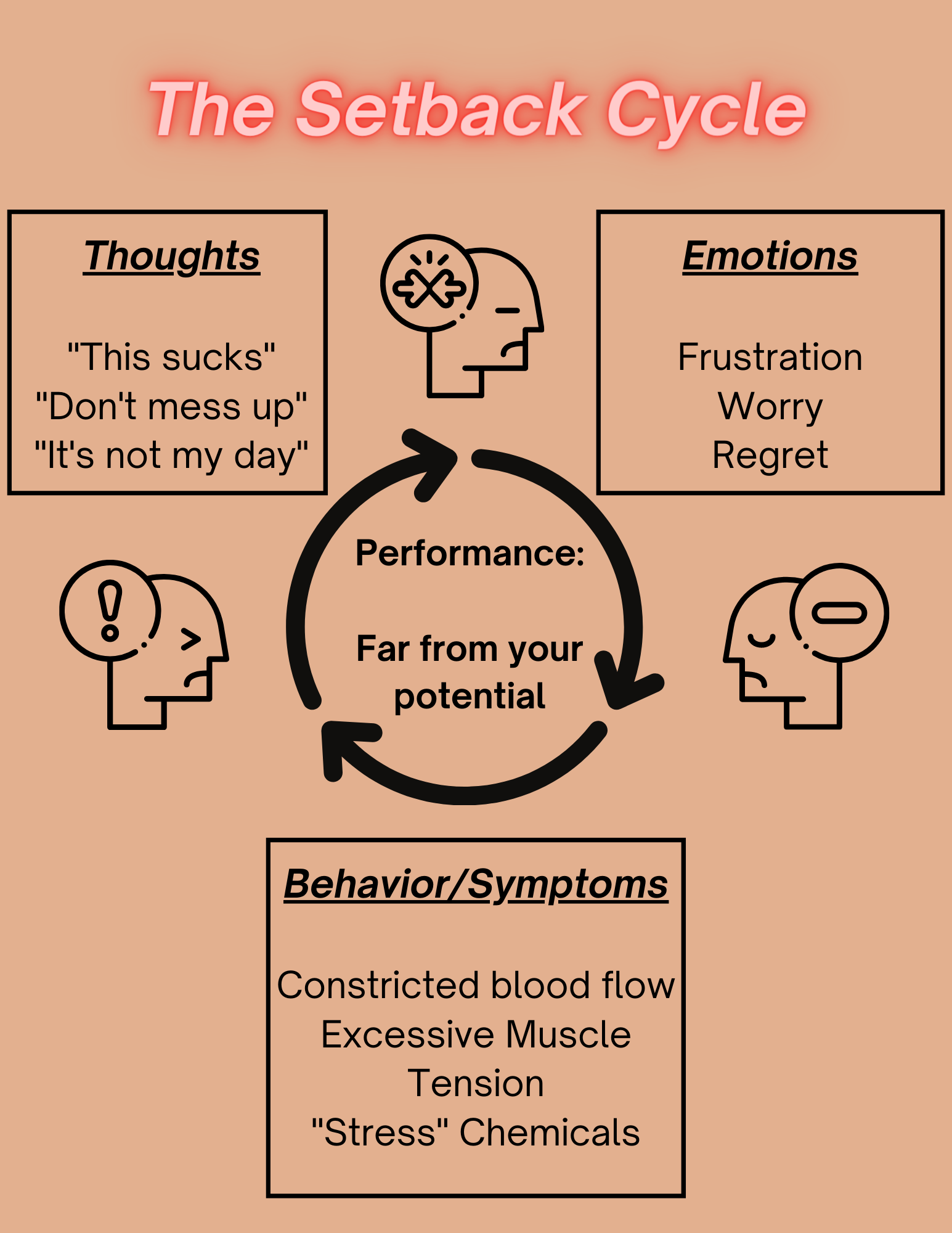
Confidence
The most frequent plea I hear from athletes when we begin coaching their mental game is something along the lines of “I want to feel more confident.”
You’re probably similar because confidence is a sign that your mental game is strong, and your performance will likely follow suit. So, let’s demystify confidence by clearing up what it is and how it impacts performance.
What is confidence?
Confidence is the total of all your thoughts about yourself, your situation, and all that has taken place in your situation.
Think about these 3 factors in the context of stepping out to a playoff game.
Thoughts about yourself
Think of this as the story you tell yourself, about you. If this story is filled with doubt and fear, your confidence will quickly dwindle.
Thoughts about your situation
While you might have confidence in yourself, the situation may undermine that confidence, leaving you filled with self-doubt. Consider a situation where you’re stepping into this playoff game, but your star player is injured and they have the home court advantage. This situation is starting to, understandably so, drain your confidence. You won’t be able to stop situational elements from attacking your confidence, but fortunately, there are mental skills you can learn and execute to minimize the damage.
All that has taken place in your situation
History, or experience, is an important factor in your confidence. Think about this playoff game where you’re playing a team you’ve had massive success against this season. Then, think about how you’d feel facing a team you’ve never won against. You’ll feel way more confident facing a team you’ve had success playing because it’s giving you solid evidence to feel confident - you’ve succeeded before!
How Does Confidence Impact Performance?
A core principle of sport psychology is understanding the setback and success cycles:
Thoughts influence the subconscious/conscious emotions you feel
Your emotions impact how you feel, physically
How you feel, physically, affects how you perform
This cycle is going on continuously as your performance impacts the thoughts you have, influencing emotions, and on and on!
When you’re thinking confident thoughts, like “I’ve trained for this,” you’re facilitating emotions that create productive bloodflow, allowing your muscles and brain to operate closer to their potential. You’re also minimizing excessive tension you’ll feel in muscles.
When you’re thinking self-doubtful thoughts, like “I have no chance,” you’re facilitating emotions that block productive bloodflow, inhibiting your body from performing at peak capacity. You’ll also feel much more tense, which hurts your accuracy, strength, and increases chance for injury.
So, while you probably understood confidence is something you want more of, you now understand some of the science of how confidence can move your mind and body into peak performance.
How To Boost Confidence
The first step to feeling more confident is improving the quality of your thoughts. This is done by training your mental filter - what thoughts do you entertain and let through the filter, and what thoughts do you stop at the filter and instantly reframe or replace?
Trust, in yourself or your team, takes time as you train your mental filter to create, then acknowledge, experiences that feed confidence.
This starts in practice - don’t let potential confidence facilitators go to waste! In games, it’s important to reflect afterward on what you did well and where you can improve. Having action items to train after games can feed your confidence by having a plan, as opposed to being confused about what to do next.
Confidence comes from a mind full of energizing and encouraging thoughts. Waiting for a sudden moment where you “get it” might be seen in movies, but if you wait for your miraculous epiphany and wonder why things never go your way in the meantime, you’ll be stuck in the same cycle of self-doubt.
Luckily, there’s a science to how you can start training your brain to think confidently, even when things are going poorly.
Ready to start feeling more confident, no matter what? Schedule a free introductory call with me and see if we’d be a good fit for sport psychology training. Click here to schedule!


